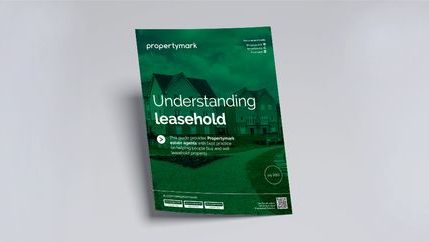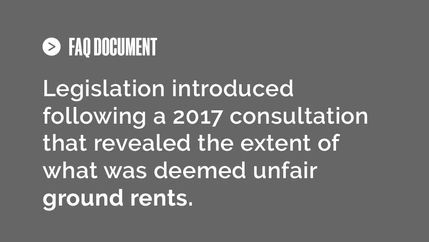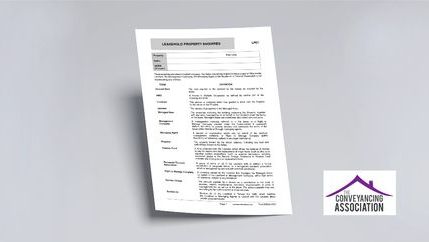
Leasehold v Freehold
If someone owns the freehold of a property, they own the building and the land it sits on. If a property is a leasehold, the buyer owns a legal interest in the property, for example, the flat they live in, but not the building or land and must pay ground rent to the freeholder.
Buying a lease means a person buys the right to live in a property for a set number of years, but the ownership of the building and the land remains with the freeholder.
Marketing a leasehold property
Each lease may have different terms, and it’s usually advised that an experienced solicitor or conveyancer should check the lease documents carefully. Estate agents should be aware of the variants and nuances around the leasehold or freehold of a property, and make sure the material information is there so a buyer can make that informed decision before they commit to a viewing or a sale.
Length of the lease
Knowing the time left on the lease is one of the most vital pieces of material information for a prospective buyer. Leasehold terms can vary (99, 125 and 999 years are common). The length is set when the freeholder creates the lease and decreases as the years go by - it does not reset when the property is sold by one leaseholder to another.
The value of a leasehold property decreases as the amount of time left on the lease goes down. Mortgage providers will not generally lend, either for remortgages or to buyers, if the lease has less than 80 years remaining.
Under current law, a leaseholder has a right to a lease extension once they have owned a property for two years. To do this they must notify the landlord and pay a fee. Presently, the standard extension terms are 90 years for a flat and 50 years for a house, however, the Leasehold and Freehold Reform Bill proposes to change this to a standard 990 years for all leasehold properties and to remove the requirement to live in a property for two years before a lease extension can be requested.
When the leasehold term ends the leaseholder's interest ends, and the freeholder has the right to occupy the land and any property on it.
Ground rent and any review period
Ground rent is not the same as rent. What letting agents, tenants, and landlords usually refer to as rent is the monthly charge for living in the owner’s property. Freeholders charge ground rent in addition to this and can charge whatever they want for ground rent. Any more than £500 per year, or £1,000 for London properties, is excessive.
Landlords can only increase ground rent if the terms of that increase are set out in the lease. For example, some leases state that the ground rent will increase according to the rental value of the property. Or it may increase by a fixed amount at certain times.
Ground rent is the element of leasehold reform which is grabbing the most headlines. The UK Government has already banned ground rents from 30 June 2022 for anyone buying a new home on a long lease (21 years or longer) and has consulted on applying this to existing leaseholds as well.
Service charges, sinking funds and administration costs
A service charge normally covers the leaseholder’s share of costs for services provided by the landlord, such as general maintenance and repairs, building insurance, and the costs of a management service if one is used. This should all be set out in the terms of the lease.
As part of the service charge, leaseholders may also be required to contribute to a sinking or reserve fund. The purpose of this is to build up a pot of money to cover irregular or expensive works, such as decorating the exterior of the building or structural repairs.
An administration charge is any money the landlord demands from the leaseholder for granting approvals under the lease, for the provision of information or documents, for dealing with a failure by the leaseholder to pay ground rent or service charges, or in connection with a breach of the lease.
Restrictions and covenants
A covenant is an obligation owed by one party to another. Positive covenants are obligations to do something, such as to contribute towards a sinking fund. Restrictive covenants ban certain things from being done, such as keeping pets, using the property for business purposes, or carrying out certain kinds of alterations.
Agents should communicate with buyers any restrictions and covenants they are aware of, particularly if it is an issue likely to affect the buying decision.
Resources for agents
The Leasehold Advisory Service is an independent body which provides free advice on residential leasehold and park homes law.
Understanding leasehold
This guide provides Propertymark estate agents with best practice on helping people buy and sell leasehold property. Estate agents have a level of responsibility under the Consumer Protection Regulations to pass on all material information in respect of a lease.
FAQs: Leasehold Reform (Ground Rent) Act 2022
The Leasehold Reform (Ground Rent) Act 2022 restricts ground rents on newly created long residential leases for single dwellings such as a flat or house to a token one peppercorn per year, effectively restricting ground rents to zero financial value.
Leasehold Property Enquiries (LPE1)
This form will coincide with lenders changing their policies to be able to lend on properties in remediation schemes, or those covered by leaseholder protections. The changes to this form arise from the Building Safety Act 2022 which came into force on 28 June 2022.









